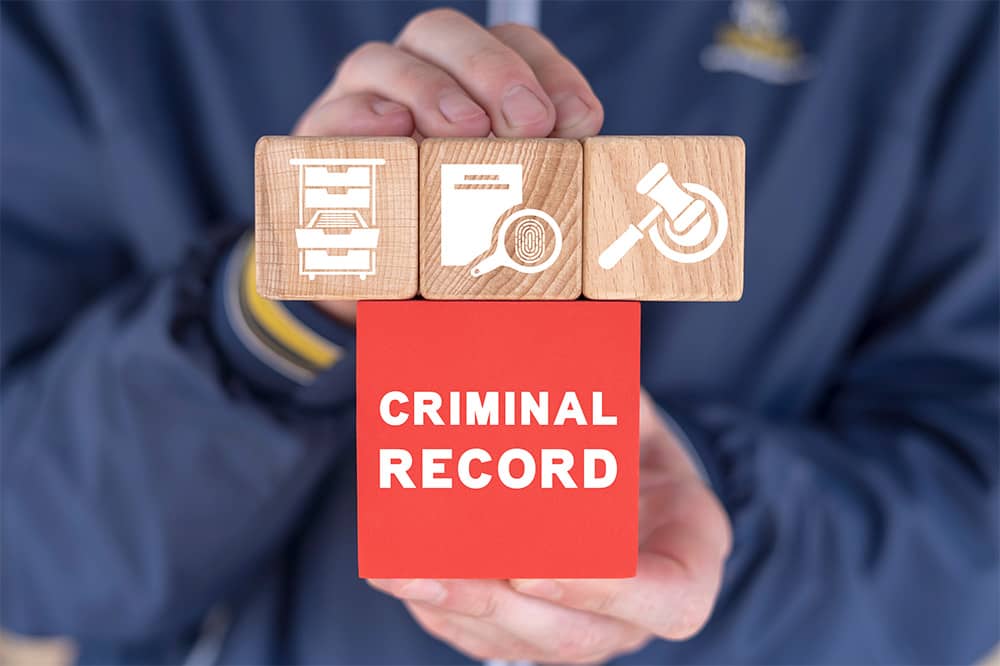How Long Does a Felony Stay on Your Record in Ohio?

As criminal defense lawyers in Ohio, we often hear the question: “How long does a felony stay on your record?” The straightforward answer is that in Ohio, a felony conviction typically stays on your record indefinitely unless you take specific legal action to have it removed.
However, this doesn’t mean you’re without options. Ohio law does provide pathways for certain individuals to clear their records through a process called felony expungement or record sealing. The availability of these options depends on various factors, including the nature of the felony, the time elapsed since the conviction or completion of the sentence, and your overall criminal history.
Felony Convictions and Ohio’s Criminal Record System
When you’re convicted of a felony in Ohio, the record of that conviction becomes part of your permanent criminal history. This information is stored in various databases accessible to law enforcement agencies, courts, and often to employers conducting background checks.
Even if you’ve served your sentence and completed all required probation or parole, the record of your conviction doesn’t automatically disappear. In fact, most felony convictions are considered permanent records unless specific legal action is taken to remove them.
Types of Felonies and Their Impact
Ohio classifies felonies into five degrees, ranging from first-degree (most severe) to fifth-degree (least severe). The degree of your felony can significantly impact not only your initial sentence but also your options for eventually clearing your record.
For instance, first and second-degree felonies in Ohio are generally not eligible for expungement or sealing. This means that convictions for crimes like aggravated murder, rape, or high-level drug trafficking offenses will likely remain on your record permanently.
On the other hand, lower-level felonies (third, fourth, and fifth degree) may be eligible for expungement or sealing under certain circumstances. This brings us to an important topic: expungement.
Expungement: A Path to Clearing Your Record
Expungement, often referred to as “sealing” a record in Ohio, is a legal process that can effectively remove a felony conviction from public view. When a record is expunged, it’s as if the conviction never occurred – at least as far as most of the public is concerned.
Eligibility for Felony Expungement in Ohio
Under Ohio Revised Code Section 2953.32, eligibility for expungement depends on several factors:
- The nature of the offense
- The number of convictions on your record
- The time elapsed since the completion of your sentence
- Your current criminal status
For eligible felonies, there’s typically a three-year waiting period after the completion of your sentence before you can apply for expungement. However, this waiting period can vary based on the specific circumstances of your case.
The Expungement Process
The process of expungement involves filing a petition with the court that handled your original case. This petition must demonstrate why you’re eligible for expungement and why granting it would be in the interest of justice.
It’s worth noting that expungement is not automatic – even if you’re eligible, a judge must review your case and decide whether to grant the expungement. This is where having experienced legal representation can make a significant difference.
Limitations on Felony Expungement
While expungement can be a powerful tool for clearing your record, it’s not available for all felonies in Ohio. Some offenses that cannot be expunged include:
- Most violent felonies
- Sex offenses
- Offenses where the victim was under 18
- Certain drug trafficking offenses
Additionally, if you have more than one felony conviction, your options for expungement may be limited. It’s crucial to consult with a knowledgeable attorney to understand your specific situation.
Record Sealing: An Alternative to Expungement
In some cases where expungement isn’t possible, record sealing might be an option. While similar to expungement, record sealing doesn’t completely erase the record. Instead, it limits who can access the information.
When a record is sealed in Ohio, it’s no longer visible to most private employers or landlords conducting background checks. However, it remains accessible to law enforcement agencies and may still be considered for certain professional licensing decisions.
Impact of a Felony Record on Daily Life
The consequences of having a felony on your record extend far beyond the courtroom. Many of our clients are surprised by how a past conviction can affect their daily lives years after they’ve completed their sentence.
Employment opportunities often become limited, as many employers conduct background checks and may be hesitant to hire individuals with felony convictions. Housing can also be a challenge, with many landlords screening for criminal records. Professional licenses, from teaching to nursing to practicing law, can be difficult or impossible to obtain with certain felony convictions on your record.
Legal Rights and Protections
While the impact of a felony conviction can be severe, it’s important to know that you do have legal rights. For instance, Ohio has implemented “Ban the Box” laws that prohibit public employers from asking about criminal history on initial job applications. This gives candidates a chance to be considered based on their qualifications before their criminal history comes into play.
Additionally, the Fair Credit Reporting Act provides some protections regarding how criminal history information can be used in employment decisions. Employers must obtain your consent before running a background check and must inform you if they plan to take adverse action based on the results.
Strategies for Managing a Felony Record
If you have a felony on your record in Ohio, all hope is not lost. There are several strategies you can employ to mitigate its impact:
- Seek legal assistance to explore expungement or record sealing options.
- Focus on rehabilitation and building a positive record since your conviction.
- Be honest about your past when required, but also be prepared to discuss how you’ve changed and grown since the offense.
- Know your rights regarding background checks and employment discrimination.
Remember, each case is unique, and the specific circumstances of your conviction will play a significant role in determining your options.
Don’t Let a Felony Record Control Your Future
While a felony conviction in Ohio can have long-lasting consequences, you may have options for clearing or mitigating your record. The legal landscape surrounding criminal records is complex and ever-changing, which is why we always recommend speaking to an attorney first before making any decisions.
At Botnick Law Firm, LLC, we have extensive experience helping clients deal with the aftermath of felony convictions in Ohio. Whether you’re seeking expungement, dealing with the impact of a past conviction on your current life, or simply trying to understand your options, we’re here to help.
Don’t let a past mistake define your future. Contact Botnick Law Firm, LLC today for a confidential consultation. We’ll review your case, explain your options, and help you take the next steps towards clearing your record and reclaiming your future.



